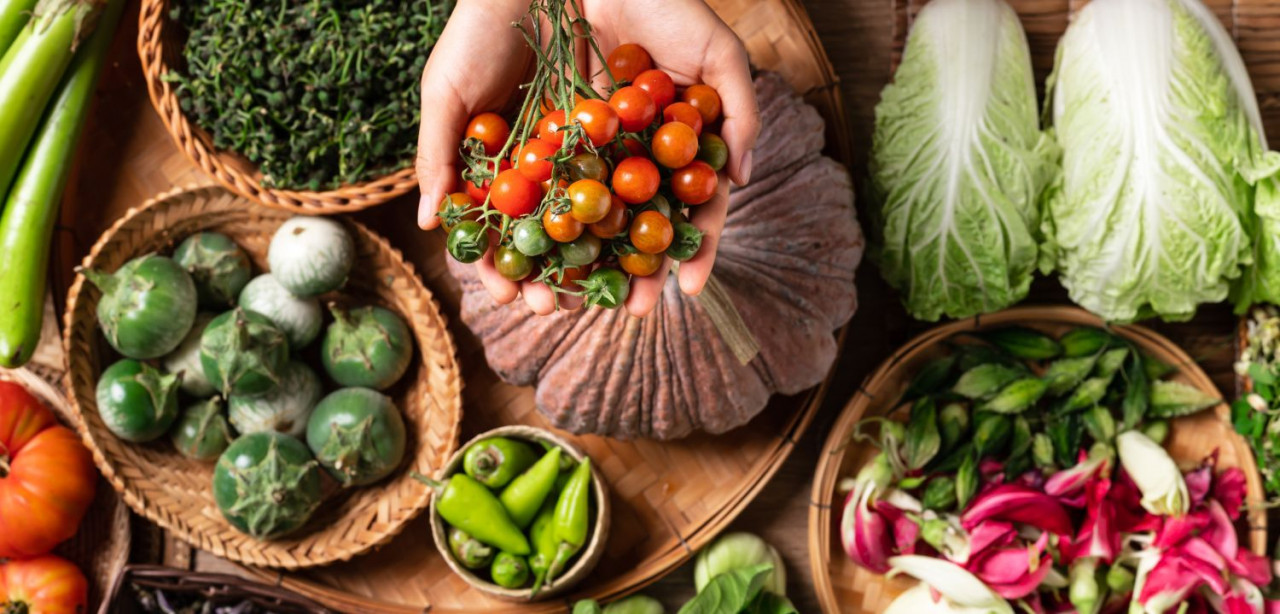Eating sustainably involves considering the impacts of our dietary choices on the planet, society, and our own health. There are many things we can do to eat more sustainably like growing our own food, souring produce sustainably and locally, including more plant-based meals in our diets and reducing our food waste.
Growing your own food
Growing your own food is self-sufficient, pesticide and chemical free and you have the control over what you plant, so you can focus on growing produce that are well-suited to your local climate and seasons. This allows you to consume fresh, local, seasonal produce with all the well-being benefits of being in your garden and connecting to nature.
If you want to get started gardening or keen to get some gardening tips check out My Smart Garden and the Green Living Series both Council programs with workshops and events on gardening.
The Wyndham Seed Library offers FREE seeds and the Green Living Map has community garden locations that you can join if you don’t have the gardening space at home.
Sourcing produce sustainably & locally
Buying food locally and supporting local businesses helps foster a more sustainable and resilient food system, reducing carbon emissions, preserving natural resources, and strengthening local communities. When you buy produce that is grown and sold locally it would generally be much fresher and in season and not transported by planes and trucks, meaning less emissions.
The Green Living Map has local Markets & Swaps where you can buy from local producers and artists or swap excess homemade and homegrown foods and gardening items with each other.
It also important to understand food certifications as they provide a transparent and credible way to communicate the sustainability attributes of a product. Certifications can guarantee products are organic, have environmental protection and/or social responsibility and fair trade. Packaging of food products can also have certifications about how the packaging is made and if they are recyclable. Ideally, we would try to avoid products with packaging and bring along out own bags.
Certifications to look out for NASAA, FAIRTRADE, Rainforest Alliance, Good Fish- Sustainable Seafood Guide, Marine Stewardship Council.
Plant based diets
Sustainable eating often emphasises plant-based diets that rely on a variety of fruits, vegetables, legumes, whole grains, nuts, and seeds. These diets typically have a lower environmental impact compared to diets high in animal products. However, sustainable eating also recognises the importance of balance and moderation, allowing for flexibility and occasional consumption of animal-based foods if desired.
If you looking to try a plant-based diet, resources like Meat Free Monday's and Bowl Cancer Australia - Meat Free Week have some great information to get started.
Reducing food waste
Each year Victorians throw out 250,000 tonnes worth of food and the average household throws out approximately $2,200 worth of food a year. Food thrown out in the garbage bin ends up in landfill and can create greenhouse gasses. Planning your meals and storing your meals can significantly help reduce food waste, Sustainability Victoria has some great resources to help.
Using compost bins and worm farms are a great way to use food scrapes to produce compost and worm juice for your garden. Council offers rebates on compost bins and worm farms through Wormlovers.
Below are some videos with plant based, no waste recipes:
